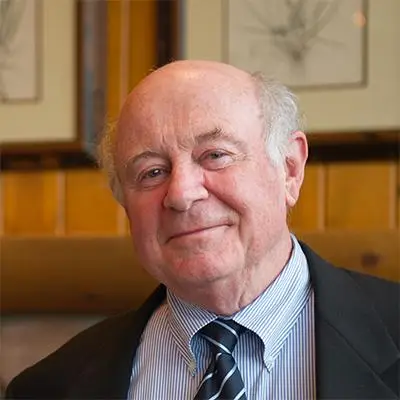Paul T. Hill is the founder of the Center on Reinventing Public Education, and Emeritus Professor at the University of Washington Bothell. His current work focuses on re-missioning states and school districts to promote school performance; school choice and innovation; finance and productivity; and improving rural schools.
Dr. Hill’s ideas have profoundly impacted education reform nationwide, influencing the way that many scholars, policymakers, and education leaders think about how the U.S. public education system can be restructured. His development of the portfolio school district management strategy has directly shaped education reform initiatives in cities like New York and New Orleans, among others. He launched the Portfolio School Districts Project in 2008, and built a national network of district officials, mayors, foundations, nonprofits, and others pursuing the portfolio strategy. Dr. Hill has been a trusted advisor to many of the nation’s leading superintendents, state chiefs, and governors; he works closely with city and state leaders facing the need to transform their urban public school systems, and is a frequent source of expertise for legislators and the media. He chaired the National Charter School Research Project and its Charter School Achievement Consensus Panel, as well as Brookings National Working Commission on Choice in K-12 Education.
Dr. Hill is lead author (with Lawrence Pierce and James Guthrie) of Reinventing Public Education: How Contracting Can Transform America’s Schools (University of Chicago Press, 1997). The book concludes that public schools should be operated by independent organizations under contract with public school boards, rather than by government bureaucracies. These ideas profoundly influenced the Education Commission of the States 1999 report, “Governing America’s Schools.” His books include A Democratic Constitution for Public Education (2014), Strife and Progress: Portfolio Strategies for Managing Urban Schools (2012), Learning as We Go: Why School Choice Is Worth the Wait (2010), Making School Reform Work: New Partnerships for Real Change (2004), Charter Schools and Accountability in Public Education (2002), It Takes A City: Getting Serious About Urban School Reform (2000), and Fixing Urban Schools (1998). He is editor (with Julian Betts) of Taking Measure of Charter Schools: Better Assessments, Better Policymaking, Better Schools (2010), and editor of Charter Schools Against the Odds (2006).
Before joining the University of Washington faculty, Dr. Hill worked for 17 years as a Senior Social Scientist in RAND’s Washington office, where he served as Director of Washington Operations (1981-87) and Director of the Education and Human Resources program (1979-80). He conducted studies of site-based management, governance of decentralized school systems, effective high schools, business-led education reforms, and immigrant education, and contributed to studies of defense research, development, and acquisition policy. As a government employee (1970-77), Hill directed the National Institute of Education’s Compensatory Education Study (a Congressionally mandated assessment of federal aid to elementary and secondary education) and conducted research on housing and education for the Office of Economic Opportunity. He also served two years as a Congressional Fellow and Congressional staff member. Dr. Hill holds a PhD and MA from Ohio State University and a BA from Seattle University, all in Political Science.




School Choice: Vital, but Not Automatic
Paul Hill
Founder, CRPE